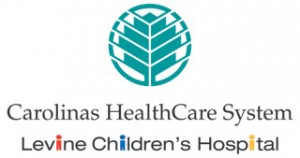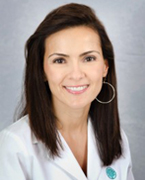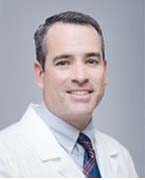We recently interviewed Dr. Ana-Maria Temple and Dr. Curtis McDonald, both pediatricians at Charlotte Pediatric Clinic on the HPV vaccine. This is a must-read for all Smarty parents who have tweens and teens! We thank them both for their knowledge and insight!
Give us a brief overview of the HPV vaccine.
Dr. Temple: The Human Papilloma Virus (HPV) is the most common sexually transmitted infection in the US, and it has 40 different types that can affect both women and men. HPV can cause warts and can lead to certain cancers, especially cervical cancer.
The HPV vaccine was developed in early the 2000s, and it became recommended in 2006 for both women and men. There are two different kinds of vaccines: Gardasil and Cervarix. The vaccines provide coverage for the most common cancer-causing strains; however, they also have cross reactivity for other strains. This means that the body mounts an immune response to the vaccine strains and to other HPV strains that are not present in the vaccines.
The vaccine has been scrutinized and studied over many years. The only side effects shown in clinical studies, at this time, are pain at the site of injection, lightheadedness and passing out within 15 minutes of the vaccine administration. But these side effects are minor compared to the problems HPV can cause.
Give us some statistics on how many people are exposed to this virus and why is it so important to be vaccinated?
Dr. Temple: Currently, according to the CDC (Center for Disease Control),
– HPV is the most common sexually transmitted in the US
– 80 million people (about 1 in 4) are infected with HPV in the US.
– 14 million people, including teens, become infected with HPV every year
– 50% of people become infected with the HPV virus upon their first sexual encounter, regardless of marital status
– By age 40, 85% of women are infected with some strain HPV
– Most everyone will be infected with some HPV strain in their lifetime
– The most common time for the infection to occur is between late teens and early 20’s
– 1 in 100 adults will have genital warts at one time
– 180,000 women and 160,000 men are affected by genital warts every year
– 17,600 women and 9,300 men are affected by HPV related cancers every year
– HPV is asymptomatic in most people and can be transmitted during vaginal births to the fetus, leading to:
– Recurrent Respiratory Papillomatosis (RRP),
– Vocal Cord Nodules (warts on the vocal cords of babies),
– Intractable seizures and brain abnormalities in young children (Source)
– Women in their thirties can be tested for HPV carrier state, however, there is no treatment and no cure. Women do no need to be symptomatic to pass the infection to the fetus.
** Clinical trials show the vaccines to provide 100% protection against pre-cancers and genital warts.
** Since the vaccine has been recommended, we have noted a 56% reduction in vaccine type infections in the US
** Genital wars have been reduced by 85% in women and 71% in men in Australia where their vaccination rates are higher
Scheduling can be tricky because it’s a three-part series spaced out every six months. How strict do we need to be on this timing?
Dr. Temple: The vaccine is given in a 3part series:
– Dose 1 at first visit
– Dose 2 at least 1 month from Dose 1
– Dose 3 at least 5 months from Dose 2
Ideally, the series should be completed in 6 months. However, if you have waited longer between boosters, you do not need to restart the series again.
What is the best age to start this vaccine and why?
Dr. McDonald: HPV vaccines are FDA-approved for both females and males ages 9-26. However, the Advisory Committee on Immunization Practices (ACIP) suggests that the HPV vaccine be given at age 11 or 12.
There are several reasons that support this age recommendation. First, the vaccine is only protective if given BEFORE any sexual activity takes place. Remembering that HPV can be transmitted through non-intercourse sexual contact, starting the vaccine at 11 or 12 covers most children with protection before any contact occurs. As parents, none of us want to try and guess when our own child might become sexually active, but CDC surveying seems to indicate that 11 or 12 is early enough to protect the vast majority of children.
Secondly, the immune system in prepubescent children is much more responsive than in older children. Some information collected suggests that the vaccine may be more effective / protective with higher antibody levels produced in these younger children. And finally, the HPV vaccine was studied for safety and efficacy when given simultaneously with the other recommended 11 year-old vaccines (Tdap booster and Meningitis vaccine).
Is it only intended for girls, or should our boys be vaccinated as well?
Dr. McDonald: HPV infects both boys and girls. HPV causes cancers in both women and men (cervical, vaginal and vulvar, anal, throat, and penile). The virus is easily passed to a partner during sexual contact. While the cancer risks are higher for females, it makes sense to vaccinate both males and females to prevent infection and transmission to a future partner.
Do most kids get this vaccination?
Dr. McDonald: Even though HPV vaccination has been recommended for many years, vaccine coverage rates for HPV in the US are quite poor. As of the latest statistics available, only about 25% of 13-year-old girls have received all three doses of HPV vaccine and the number is even worse for males (15%).
In my opinion, these numbers are low because of misinformation about the vaccine, which leads to parental fear and hesitation in consenting for the vaccine when offered. Even though the vaccine is recommended and covered by insurance, it is not required for school attendance in most states. We must continue to educate and empower parents about the safety and effectiveness of this vaccine so we can increase coverage rates and prevent future cancers.
Is it important to discuss the reasons behind this vaccine with your child? If so, do you have any tips on this starting this conversation?
Dr. McDonald: I think the discussion is going to be different for some families than it will be for others. Parents know their children better than anyone else and they should use that knowledge to judge when it’s appropriate to discuss the details of HPV with their child.
The HPV vaccine should be discussed in the same manner as you would the other vaccines recommended at 11 or 12. If parents are not comfortable discussing the details of HPV transmission with their 11 year old, that is completely understandable. A simple statement of general information can suffice for some. For example, “The three vaccines you are getting today help prevent disease and keep you healthy. One of the three can even help prevent future cancers.”
However, for some families, questions about the HPV vaccine may open up healthy discussion with their preteen regarding pubertal changes and basic reproductive health. These are important opportunities for parents to share information as well as their values with their child.
![]()
![]()
Levine Children’s Hospital
Facebook
Instagram
Twitter
Pinterest





